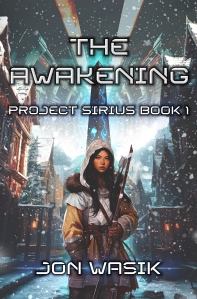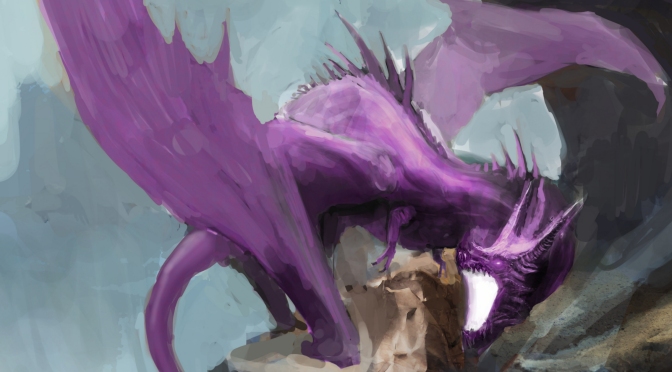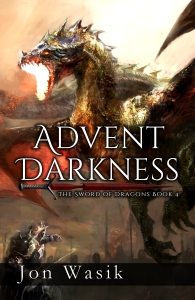Hello, there!
Miss me?
I know, I went from being pretty prolific in my social media to being a veritable ghost! Unfortunately, I kind of expected that when I knew I had to go back to a day job.
I mean, I’ve balanced my work life, home life, and writing life before, but it was always a delicate balance, and being a neurodivergent person, a lot of my (limited) success in that arena depended on things being stable amongst all three.
Life has been anything but stable. For a long time. And now that I’ve started not just a new job, but a new career, one of those three things has obviously been upended. Plus, my home life has been out of balance for a long time, due to having to move frequently (thank you Denver Metro for having a horrific housing/rental market…)
So what does that mean for the future? Am I back on social media starting today?
No. :(
The New Career
As I’ve mentioned in a previous post, I started a new career as a technical writer! Well, it’s actually a bit more than just that. Officially my title is “Business Process Analyst” which I’ve learned basically translates to “Technical Writer+”.
I generally keep my job separate from social media, but given that my job involves writing, I did want to touch on it just a bit, in a very general and vague sense.
Technical writing is a very different beast from creative writing, as you might imagine. However, I was already semi-familiar with it, because as a computer sys admin, a big part of what I did was document processes and procedures for everything I did, quite meticulously. And I was also a bit of an outsider in doing so – sys admins generally aren’t good writers. They generally don’t like writing. Every job I ever worked had a dearth of documentation, and I usually spent a considerable amount of time and effort fixing that.
My bosses loved me for that. (In fact, my current manager hired me in this new career because he remembered how diligent I was with documentation!) People who took over after I’ve left a job loved the documentation! It is something that’s very much needed in the technical field, and yet is so very often ignored or overlooked.
But becoming a Technical Writer, let alone a Technical Writer+ (err, I mean, a BPA), it’s a whole other bag of worms! Because I’m not just learning how to manage my system and then writing procedures as I figure it out for myself. I’m not even just focusing on one system.
I’m focusing on an entire program!
Things that I previously ‘let other people deal with,’ like program management, suddenly is front-and-center for me. Policies, processes, procedures, for all aspects of a technical program, are now my business. I have to learn it all, so that I can write about it all.
So the past two months have been a bit of an information overload. That, more than anything, is why I’ve not been on social media. Why I haven’t been writing, or editing, or really doing much of anything creative-writing-related. Because when I get home, I’m exhausted.
However, there is one good thing about all of this – I’m SO much happier where I’m at, doing what I’m doing! Before now, I went from one toxic work environment to another. But finally, I’m in what finally feels like a good-quality work environment with coworkers who actually care (about their work AND about their coworkers). My manager is encouraging and helpful, and I’m not frustrated every single day!
And I’m not stressing out over keeping computers operational. Instead, it’s now my job to help enable the people responsible for keeping systems operational. Basically, I’m more of a support person now. And my stress levels are ever-so-grateful for that!
When Is My Next Book Coming Out?
So with my writing life being impacted so heavily by my new career, when is my next novel coming out?
Believe it or not, that’s not being impacted by this at all, not yet (and hopefully not at all). Project Sirius 2 is still coming out this year!
Unfortunately, there’s a move coming up for us soon. We live in a really ratty, stressful apartment complex right now, and so we’re gonna move soon.
Once that move is done, I’m gonna give myself some time to unwind and relax and live life.
So, my current plan? Project Sirius 2 should be out this Fall. That’s my goal.
The Awakening came out in September, but I don’t think I’ll make the one-year mark on book 2. Instead, I’m thinking closer to the end of October.
What comes after that? I still have to write the Sword of Dragons 5. 2 chapters are written, and that’s all. I fully intend to use NaNoWriMo this year to make a huge dent in it, but I’d be shocked if I finished the entire novel in that single month. Then again, I’ve shocked myself before. And if home life gets better (IE: our new apartment is less stressful to live in), who knows, I could find myself with another major creative outpouring :)
But for 2024, only a single novel is expected to be published. My goal for Sword of Dragons 5 is sometime in 2025.
I wish I could write more. I wish I could do what I did in 2020 and get 4 novels written! But as long as I have a day job and don’t make enough on writing…that’s just not possible.
Speaking of my writing career and how it’s doing!
Surging Popularity of the Sword of Dragons!
I’m pleased to report that the Sword of Dragons saga is enjoying more attention than ever before! For the first time ever, book, eBook, and Kindle reads are consistently happening! I mean, as consistent as can be.
Let me put it to you this way – in years past, there were times where I’d only get a single sale in a month, and then a surge of four or five, then something more middling, then nothing at all. KENP reads came in spurts. A single person would apparently read book 1, then 2, maybe 3, and then possibly 4. I could almost always track when a new person found the books because there was never any evidence that more than one person was reading at the same time.
Now? Now I’m getting multiple orders of at least book one every month, often leading to sales of the other books in the series! Usually it’s either book 1, and then a little while later, books 2, 3, and 4 all at once, or sometimes, all 4 books at once (and at least a handful of times, The Orc War Campaigns!) And KENP reads? I’m often seeing every single book being read a little bit at a time every single day! Which means at least 4 people are reading at the same time!
“Oh woopey, 4 people at the same time! That’s not impressive.” Oh, yes it is. For an author who, as I said before, saw maybe one person per month reading, a sudden uptick like this, that has lasted for months, is FREAKING AMAZING!
This is the biggest step forward I’ve ever seen in my writing career!
What’s the source? Well, it started with a marketing boon. I finally found a video (click here to see it) that explained the Amazon advertising algorithm, and how to navigate it, in a way that I could understand (previous videos or help documents just didn’t click in my ADHD brain). So I changed how I managed my ads, and within the first month of that change, I started seeing surges in new readership!
Following that, only a month later, I drastically had to (once again) reduce my advertising budget, killing off all advertising for some titles (Project Sirius :( ) so that I could keep the momentum going for Sword of Dragons. But it’s still paying off, and in fact I’m seeing momentum building for Sword of Dragons despite not changing how much I’m spending on ads!
Another part of it – with the surge of new readers has come more ratings, and largely good ratings! (Plus a new, glowing review on Amazon for Rise of the Forgotten!) I think as my ratings numbers increase, and RotF stays above the 4-stars mark (which it so far has easily done), I might continue to see this momentum building!
In short, it’s a really, really good sign :D And once things settle with my new career, I intend to take what I learned for advertising with Sword of Dragons, and apply it to Project Sirius to try to get interest in that series going, especially after book 2 comes out!
How You Can Help
I am immensely grateful for each and every one of you who reads my novels! I know there’s been a slight uptick in new readers to this blog, too, and I’m so glad you’re here! I hope you’re willing to show me some patience over the coming months as my life undergoes various changes – that’s the first way you can help (showing patience with me) ;)
The other way? The biggest way you can help? Please leave ratings for any of my books that you’ve read on Amazon, as well as anywhere else you’re willing to leave a rating on!
Better still, on top of those ratings, please leave a written review! Something as simple as “I liked it” or “I thought it was okay” is good, but if you have the time and want to go into a little bit more detail, you’d be helping not just me, but you’d be helping future readers decide if they want to give my book a chance!
In fact, that’s one of the best things about reviews – you’re not just helping the author, you’re helping your fellow readers find the right books for them (by steering those with similar taste in the right direction!)
Beyond that, you can like, comment on, and share my social media posts, like this one!
Thank you for reading! :)
-Jon Wasik


























